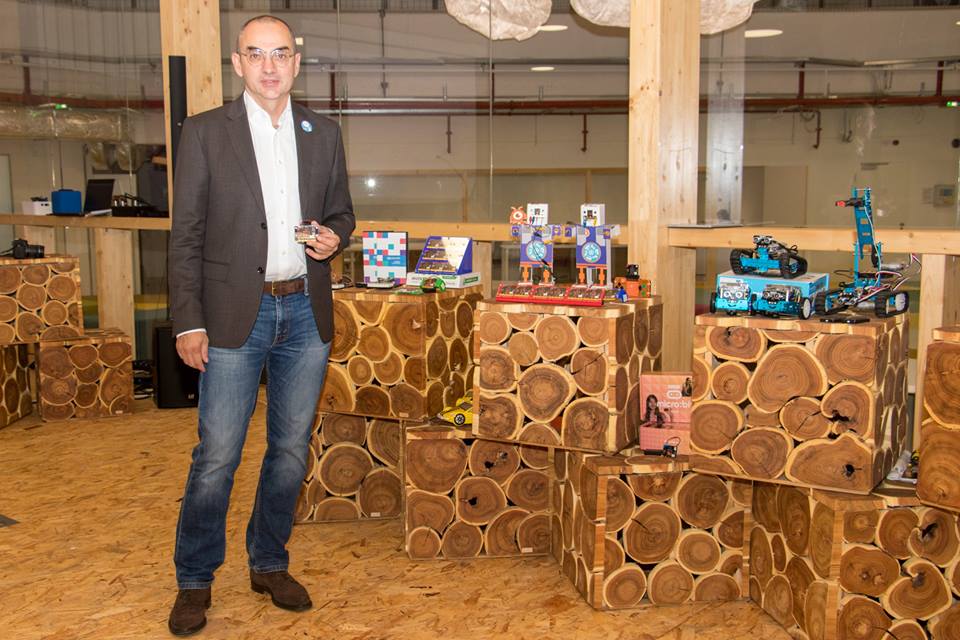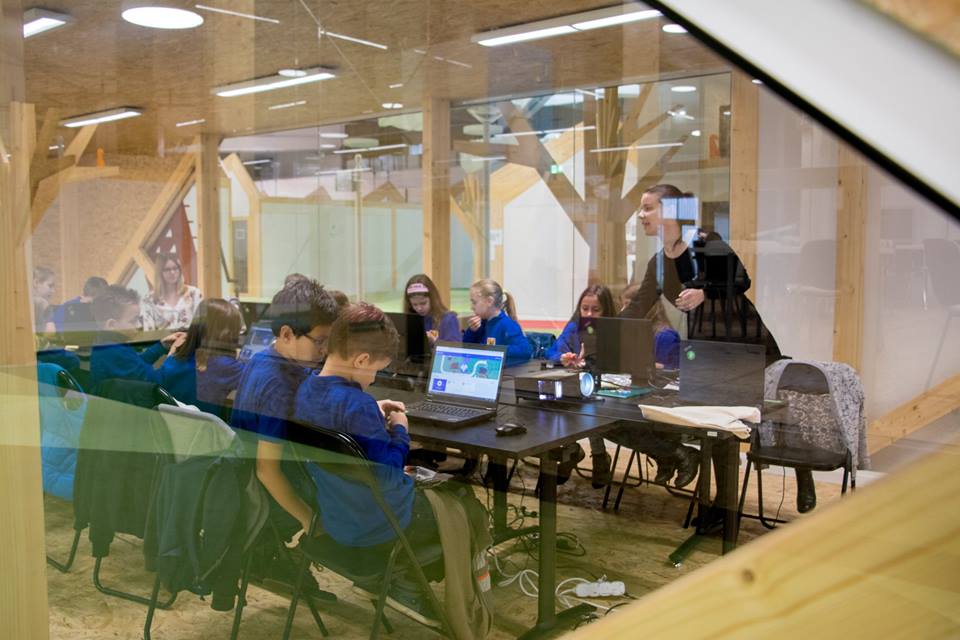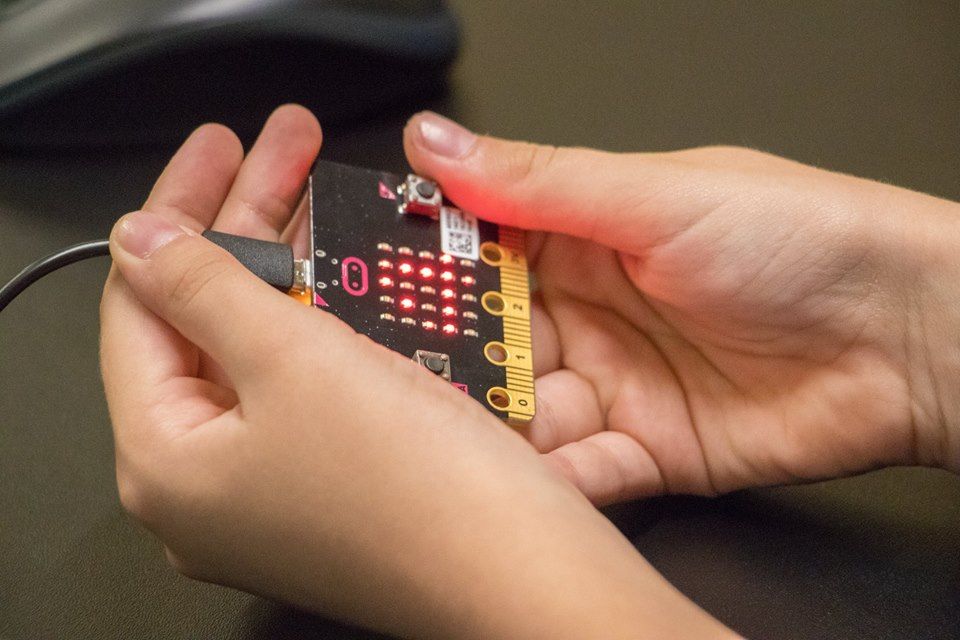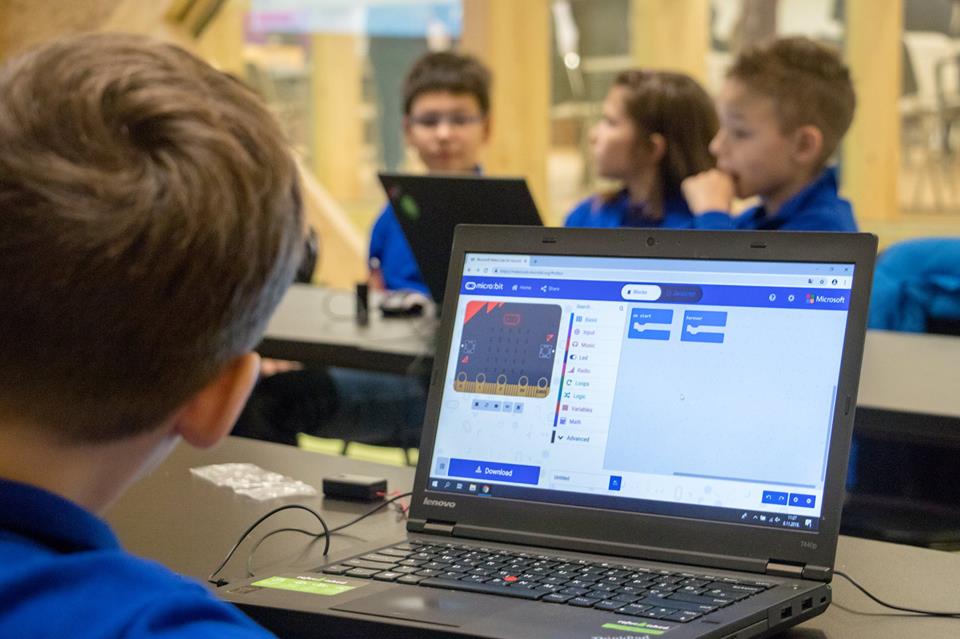Could Slavonia be Transformed into Croatian Tuscany?
Could Slavonia become Croatia's very own Tuscany through the story of its local wine? Possibly, as Kutjevo has seen a massive 54 million kuna investment into its new area.
As Poslovni Dnevnik writes on the 11th of November, 2018, on Friday in Kutjevo in Slavonia, a new investment in the Galić winery worth a massive 54 million kuna was presented, the huge investment will increase the winery's capacity by as much as one-third, as they announced.
Of the 54 million kuna, 35 million kuna was invested in the building itself and another 19 million kuna into the equipment. Winery owner Josip Galić pointed out that the winery will remain a boutique winery, and will follow all the current trends, continuing to produce quality wines, rather than focus on mass production.
"Although our winery could be considered a miracle of modern technology and has equipment that even the world-renowned wineries would envy, we're just starting to build our story in Kutjevo. The ultimate goal is to develop the whole region, we want to make a Croatian Tuscany out of Slavonia, as it justifiably deserves it,'' explained Josip Galić, the owner of the winery. The CEO of Galić wine, Andrej Markulin, pointed out that this year, the winery is celebrating ten years of business and wants to intensify its production of "serious" wines in the long run.
The winery in Slavonia looks simply like brick and concrete, but attracts tourists and wine lovers from all over the world, and the attraction is intensified just by viewing the interior and getting to know the equipment that the world's best manufacturers are currently offering.
"With new technology and equipment, we have all the conditions [available to us] to achieve this goal very quickly," he pointed out. The winery began with seven hectares of vineyards and 30,000 bottles of wine. Today, there are 55 hectares, and some of the grapes are from local wine growers.
The capacity of the new winery is 630,000 bottles, which is 30 percent more than there is at the minute, and their annual production is 330,000 litres. In addition to wine production and grape growing, Galić launched chestnut and blueberry growing this year, into which there will be an additional investment of 8.5 million kuna.
Want to keep up with more news like this from Slavonia and from across the country? Make sure to follow our lifestyle and Made in Croatia pages for more.
Stem Revolution for Croatian Schools: Programming with Micro:Bits
The stem revolution for Croatian schools has begun for children in grades 1-4!
Zagreb, November 6, 2018 - Elementary schools across the whole of Croatia as can apply for participation in the new STEM Revolution – Grades 1- 4 project. Those participating will have the opportunity to teach their youngest pupils digital literacy competencies and learn programming using micro:bits.
The project was presented by Nenad Bakic, the President of the Institute for Youth Development and Innovation (IRIM). During the last year, project STEM revolution introduced programming into the wider education system, with a donation of 25,000 micro:bit microcomputers into 1000 institutions.

In cooperation with the Ministry of Science and Education, the Croatian Employers Association, CARNet and other partners through the ProMikro project IRIM, programming in the 6th grade with over 35,000 donated micro:bits was introducted, was well as content development and education of over 2000 teachers.
''There is a strong interest in Croatian educational system for the introduction of STEM competencies, especially in relation to technology. This can be seen in advanced activities, for example, through the ever-growing interest in the Croatian Makers Robotics League, which now includes over 550 educational institutions, but equally at the widest level of digital competence development, i.e. programming and the development of digital literacy, through STEM Revolution projects and ProMikro. As a follow up to these projects, research conducted among school principals and teachers shows a great interest in expanding these activities,'' Nenad Bakic said at the presentation of the project which will be implemented in cooperation with Rotary Club Zagreb Center and Rotary District 1913 – Croatia.

There are currently approximately 2000 schools in Croatia which have pupils in grades 1 - 4, and all will be invited to voluntarily participate in the project. Expectations are that approximately half of the schools will apply, taking into account the interest of the school and the teachers, as well as the availability of other equipment such as computers, tablets, or smartphones, which are used to program micro:bits.
Programming will be introduced for a particular subject and also across the spectrum of school subjects. Micro:bit is a teaching tool for delivering existing content in a digitally creative way so there is no need to change the curriculum.

After the national STEM project, the micro:bit has established itself as a globally unique and leading computing platform, with national projects, for example in Denmark (for all 5th grade students, to introduce programming), Singapore and Canada.
As lower grade students rarely have a designated time to use computer labs, micro:bits will be placed in school libraries. In this way, teaching can take place in the library and in the classrooms. The library will allocate additional micro:bits for students to borrow for work at home, Bakic announced.
The project cost is estimated at 5 to 6 million kuna, and initial funding will be provided by IRIM and the Rotary Club Zagreb Center, each with 100,000 kuna, which will secure the purchase of the first micro:bits.

The project will be implemented for a period of 12 or 24 months, depending on the availability of funds and interest of the schools. It is possible to finance it in phases, so schools will receive micro:bits in waves, in the order that have signed up.
IRIM will also fund the development of content for lessons from various subjects, using micro-bits, just as it did for the 6th and 5th grade. Content will be permanently available and upgraded using various channels. IRIM will also educate 1000 - 3000 teachers, just like it previously trained two thousand teachers for the ProMikro project.

IRIM also provides web site production, collection of applications and communication with schools. Partner organisations joining are: the Croatian Post Office, which will donate the delivery of micro:bits throughout the country, the Bruketa & Žinić & Gray creative agency will supply its services in the project presentation, and the PR agency Communication Laboratory will give support for public relations. BBC micro:bit is an educational and creative tool whose purpose is to inspire a new generation of young people.
It can be used in a variety of ways throughout the curriculum, not just in STEM subjects (science, technology, engineering and mathematics). It can help young people acquire knowledge and skills to develop from digital technology consumers into designers and creators of new tools that will help them improve their learning, solve problems or simply entertain them and allow them to take full advantage of the benefits of life and economy in the 21st century.

Micro:bit is characterised by extremely low prices, low barriers for beginner and advanced use, and a highly rich ecosystem. Click here and here for examples.
The founders of the Micro Foundation are: the BBC, Microsoft, Amazon, Samsung, ARM, the British Council and others.

IRIM runs the Croatian Makers program, which includes a number of projects such as: the Croatian Makers Robotics League, STEM Revolution, ProMikro, Internet of Things, STEM Revolution continues - Libraries, STEM Car. Croatian Makers, with over 100,000 children, and over 3,000 educated teachers, is the largest program of its kind in the EU.

The founders of IRIM are Nenad and Rujana Bakic. You can find more information on Croatian Makers here. Participating schools can apply here.
Want to keep up with more information on the stem revolution in Croatian schools and more information like this? Make sure to follow our Made in Croatia page!
Croatian Companies Establish Market Connection of 1.4 Billion People
27 Croatian companies are also part of the historic Chinese international import fair.
As Marija Brnic/Poslovni Dnevnik writes on the 6th of November, 2018, China will continue to open its market for foreign products and cut import tariffs, this was the main message from China's President Xia Jinping at the opening of China's first international import-export fair entitled China International Import Expo (CIIE), an event which has already been rated historic and whose opening in Shanghai was attended by the leading people of fourteen countries, including Croatian Prime Minister Andrej Plenković.
More than 3,000 companies from 130 countries worldwide participate in this large gathering, and within the CIIE, the Croatian-Chinese Economic Forum will be held today, which will include 27 Croatian companies interested in entering into business cooperation with numerous Chinese partners.
Some of the companies have already established excellent market connections that include more than 1.4 billion people, such as Podravka, Badela 1862, and Pan Parket from Orahovica, which is the biggest advocate of turning Chinese customers towards the wood industry sector. Wood is also the main Croatian export product. In total, exports last year were worth a massive 126 million dollars. This year, exports to China are growing faster than they did in the previous record year, by as much as 44.5 percent.
PPS Galeković from Velika Gorica just outside of Zagreb is also representing the wood industry in Shanghai. Among the companies that want to enter the Chinese market are a significant number of smaller companies dealing with consulting, information projects and web design, such as Adricon Group, Mipesa, Provena, Gelt date, as well as a few industrialists - Meteor, a producer of detergents and chemical products from Đakovo in Slavonia, Kotka from Krapina, which specialises in the production of men's suits, and the well known Croatian special equipment producer, Lučko.
Partnership with Huawei?
Representatives of Luka (the port of) Ploče also attended the meeting, who, along with their counterparts from the port of Rijeka, which, during his speech on "Trade and Innovation", Plenković personally recommended to Asian companies operating in the European market. During the fair, the Croatian Prime Minister also had a working meeting with Huawei President for Europe, and Plenković stated that he expressed interest in intensifying cooperation and partnership with Croatia in the digital age.
In addition, the brand new Croatian Tourist Board (HTZ) office has been officially opened in Shanghai, with the aim of strengthening promotional activities on this market, from which Croatia continues to receive a growing number of visits. This year, Croatia will be visited by 250,000 Chinese tourists, which is a much higher figure than in previous years.
Want to keep up with more news about Croatian companies and the potential of closer ties with the Chinese? Make sure to follow our business page.
Click here for the original article by Marija Brnic for Poslovni Dnevnik
Croatian Products: Leading Candle Producer Exports to European Market
Croatian products are known for their high quality, and the jump from market stand to the leaders of the market is a praiseworthy one.
As Vedran Balen/VL/Poslovni Dnevnik writes on the 28th of October, 2018, as many as seven thousand pallets with more than six million lamps and candles are produced each year by this Croatian company.
The products find themselves on both the domestic and foreign markets and originate from from the small settlement of Zadubravlje near Slavonski Brod, and the company in question, Primax, has been the leading manufacturer of these products in Croatia for a great many years.
On the eve of the All Saints' Day, the company has their hands very much full, as one can easily imagine. The company's co-owner and director Robert Pandža stated that although he doesn't know for sure whether or not his company is the first in Croatia, he knows it works extremely hard. He added that every European region has its own idea of how such candles and lamps should look, and they therefore try to satisfy and adapt to the often varying needs of a large market.
The Slavonski Brod native started work in this field way back in 1994, when just he and his wife ran the business. They started out with very humble beginnings, more specifically with a small stall on the market, eventually establishing a different development phase and managing to successfully adapt these Croatian products to the often ever-changing and demanding market conditions.
They started to import cosmetics and supply perfumeries and similar types of stores, of which there were a great many in Croatia at that time. They started to work on plastic sheeting, and then continued to expand yet further upon seeing that such a move had been very well received and was doing well. After numerous business ventures, they eventually decided to focus exclusively on production.
Today, Primax does exceptionally well and has some fifty employees who work in three shifts, their own production and storage area covers a handsome 2,000 square metres. During the course of a quarter of a century of their existence, the company has even changed its location on seven different occasions, mainly when they were more engaged in commercial activities as opposed to production. Years of work and valuable experience made them realise that they needed some serious production capacity, and a very serious approach to such a business. Thus, five years ago, they invested 14 million kuna of their own funds in the construction and the proper equipping of a new production hall in the village of Zadubravlje. After that, the production was all set up and ready for business, quite literally.
"It's not easy to produce six million pieces. To increase production again, we'll need to invest a lot again because candles require a large storage space. In this business, the biggest percentage of sales takes place within a month or two before All Saints Day, but production is already going on in February. The rotation cycle is similar to that of agriculture,'' explained Pandža.
As they purchased land one year earlier, their application for a subsidy was denied on the grounds that they had already started investing. Namely, only those who hadn't actually invested at the time could be nominated for the tender, so they remained without support. The only incentives they received were 300,000 kuna from European funds for the introduction of new software, 250,000 kuna from the Ministry of Entrepreneurship and Crafts for the improvement of production, and 100,000 kuna from Brod-Poavina County for the purchase of new machines.
"In Croatia, the main problem is the relationship with entrepreneurship. If we managed to get forty percent of that multi-million investment, we'd have yet another new line and a better position on the market today, and the workers would be more satisfied and they'd also be better paid. Otherwise, the general trend is a positive one and the situation is much better today than it was a few years ago.We're just not satisfied with the outcome,'' Pandža stated.
In addition to candles and lamps, they also produce PE foil from recycled or original material and packaging, and their annual turnover stands at around thirty million kuna. Their EBITDA ranges from 1.3 to 1.5 million kuna, while pure profit is about 300,000 kuna. About 35 percent of the company's production is exported to the European market, including France, Ireland, Germany, Austria, Belgium, Denmark, and Finland, with a tendency for further growth.
Ultimately, exports should grow to more than fifty percent.
Want to keep up with what's going on in the world of business in Croatia? Follow our business page and our Made in Croatia page for news on Croatia's many successful companies, products, and entrepreneurs.
Click here for the original article by Vedran Balen/VL on Poslovni Dnevnik
Video Featuring Famous Croats Chosen as Best Croatian Tourism Film
More than 807 films from 91 countries were introduced at this year's Zagreb TourFilm Festival, and the best among them were screened during the last three days at Kaptol Boutique Cinema.
Seven Croatian Companies on List of Fastest Growing in Central Europe
More Croatian companies go from strength to strength!
Intangible Heritage of Croatia – Ćupter – Traditional Wine Jelly Candy
Learn how to make the candy of Croatia's past!
Unique Stonemasonry School on Brač Lures International Students
One unique school on this central Dalmatian island is of interest for students from across the continent.
Mate Rimac: We Made Mistakes, But We Learned From Them
Rimac speaks of the hardships of such a heavy workload, and how the car industry is an extremely difficult one worldwide.
Components for Almost Every Household Appliance Produced in Zagreb
EGO became the majority owner of the Elektro-kontakt company back in 1992, and today the Zagreb-based company has 830 employees and boasts an impressive 390 million kuna income.


